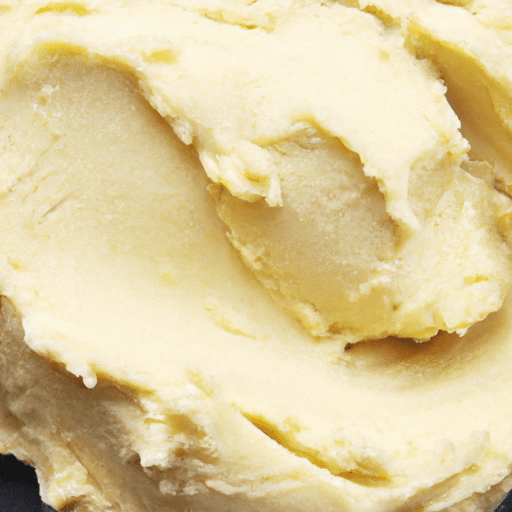Exploring the Nutty World of Soy Nut Butter
Soy nut butter, a creamy and versatile spread, has been making waves in the culinary world due to its unique flavor profile and numerous health benefits. While peanut butter may reign supreme in many households, soy nut butter offers an exciting alternative for those with dietary restrictions or simply seeking something new and delicious. In this blog post, we will take a deep dive into the world of soy nut butter, exploring its taste, common uses in cooking, nutritional value, and uncovering some fascinating history and facts.
Tasting the Creamy Goodness
Soy nut butter boasts a delightful taste that can best be described as rich, nutty, and slightly sweet. Its smooth texture and velvety mouthfeel make it an absolute pleasure to spread on toast, fruits, or even to enjoy by the spoonful. While it shares some similarities with traditional peanut butter, soy nut butter offers a distinct flavor that sets it apart and makes it worthy of any pantry.
Versatile Uses in Cooking
Soy nut butter’s versatility shines through in its incredible range of uses in the kitchen. You can use it to craft delectable sauces, dressings, and dips with an added nuttiness and creaminess. It can be incorporated into smoothies, oatmeal, or baked goods, where it adds depth and an irresistible flavor.
For those with dietary restrictions, soy nut butter is an excellent alternative for traditional nut butters. Its smooth consistency allows it to work wonders in vegan desserts and treats like cookies, muffins, and energy balls. It also serves as a fantastic base for savory sauces, as it effortlessly blends with other ingredients to create unique and satisfying flavors.
Nutritional Powerhouse
Apart from being a culinary delight, soy nut butter also packs a nutritional punch. It is a great source of plant-based protein, making it an ideal choice for vegans, vegetarians, or anyone looking to increase their protein intake. The presence of healthy fats, fiber, and essential vitamins and minerals further adds to its nutritional value.
Soy nut butter contains no cholesterol and is lower in saturated fats compared to some other nut butters, making it heart-healthy. It also contains a good amount of vitamin E, iron, and magnesium, which contribute to overall well-being. Additionally, soy nut butter is naturally gluten-free, making it suitable for individuals with gluten sensitivities or celiac disease.
A Journey Through History and Intriguing Facts
Soy nut butter has a rich history that dates back to ancient Chinese cultures, where it was initially used as a condiment. Over the years, it has gained popularity worldwide and has become a staple in many households.
Interestingly, soy nut butter is made by grinding roasted soybeans into a smooth paste, much like peanut butter is made from peanuts. This process helps retain the inherent nutty flavors and unlocks all the goodness that soybeans have to offer.
Try It Yourself!
If you haven’t had the pleasure of trying soy nut butter, now is the perfect time to give it a go. Incorporate it into your favorite dishes or explore new recipes that can truly showcase its unique characteristics. Whether you have dietary restrictions or simply want to expand your culinary horizons, soy nut butter promises to be an exciting addition to your pantry.
So why not embark on a nutty adventure and discover the wonders of soy nut butter for yourself? Your taste buds will thank you!
Note: If you have a soy allergy or any concerns, please consult your healthcare professional before adding soy nut butter to your diet.
Remember to share your culinary creations with us in the comments below. We’d love to hear about your experiences with soy nut butter.
Soy Nut Butter
Origin: Soy nut butter is a spread made from roasted soybeans. It was first developed as an alternative to peanut butter in the 1990s to accommodate people with peanut allergies.
Common Uses: Soy nut butter is primarily used as a replacement for peanut butter, and can be substituted in a variety of recipes such as sandwiches, smoothies, baked goods, and sauces.
Nutritional Benefits: Soy nut butter is a good source of plant-based protein and fiber. It also contains essential vitamins and minerals such as iron, magnesium, and vitamin E. Moreover, it is cholesterol-free and lower in saturated fat compared to traditional peanut butter.
Unique Properties: Soy nut butter has a creamy and slightly sweet taste with a smooth texture that is similar to peanut butter. It is a suitable alternative for those with peanut allergies, making it more inclusive for people with dietary restrictions.
Historical Significance: Soy has been an important staple food in Asian cultures for centuries. The production of soy nut butter is a recent innovation that caters to those with peanut allergies and provides an alternative source of plant-based protein.




Use the share button below if you liked it.
It makes me smile, when I see it.